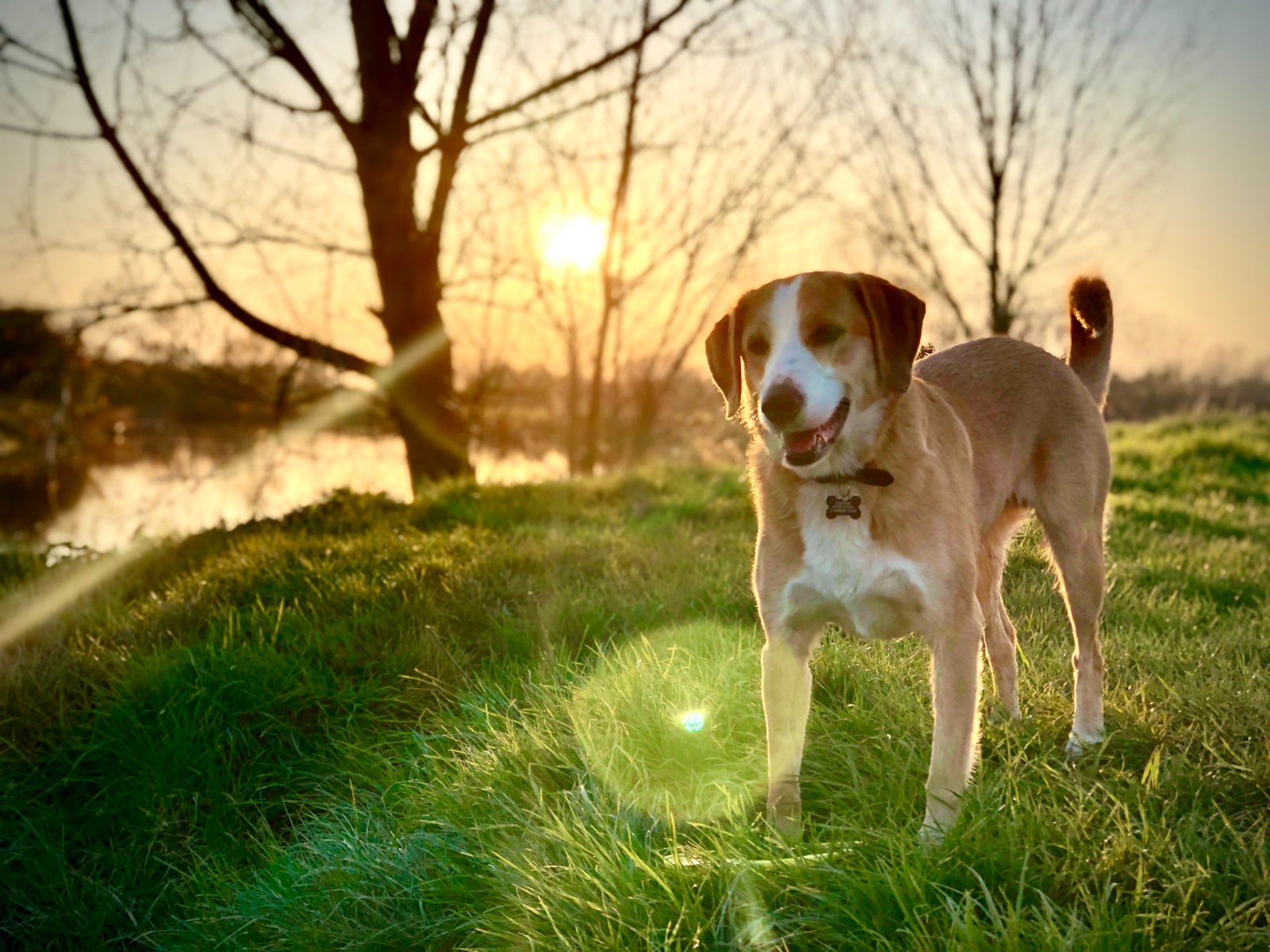
My dog eats grass — is that ok?
Spring has sprung. As you get into the great outdoors, does it seem as though every lawn is your dog’s personal salad bar?
If so, you might be wondering, “Why is my dog eating grass?” or “Should I let my dog eat grass?!” You might be especially curious if, after seeming so desperate to eat grass, your dog pretty much immediately pukes it all up again.
Hmm. Well, here’s the thing. Dogs are opportunistic omnivores. That means they are mostly carnivorous and their bodies are best suited to extract nutrients from meat. In fact, your dog’s body needs the amino acid taurine that they can ONLY get from meat and fish.
But, your dog’s body is also able to benefit from nutrients pulled from plant matter. And since dogs (like people) have their own favorite textures and tastes, some dogs love a good fruit or vegetable treat.
Still, do dogs benefit from eating plants, like the grass you pass by on your daily walks? In some ways, they do!
Cool grass as a hydration station.
So why do dogs eat grass? Turns out that some dogs eat grass because grass is a cool food source that is loaded with moisture. You may notice your dog likes to chomp on grass that’s in deep, cool shade. That’s grass that’s likely to be moist and cooling. Consider offering your dog a drink of actual H2O — they may be dehydrated.
A taste for grass may be in your dog’s genes.
Eating grass is within the range of normal dog behavior — and we mean from way back. There are several species of wild dogs that commonly eat grass. Researchers at UC Davis found that even wolves can have varying percentages of grasses in their fecal matter.
It is theorized that eating grass helps entangle and remove intestinal parasites in undomesticated predators. And while our dogs at home are treated with preventative medicines for parasites, the desire to eat some grass may well be written into your dog’s DNA.
Dogs don’t eat grass for tummy aches.
Many people think that if a dog eats grass all of a sudden, it’s because they have a tummy ache. But grass doesn’t necessarily calm an upset stomach. Lawnmower dogs often love to chew on some fresh green grass because they like the taste.
Should I stop my dog from eating grass?
If you’re wondering whether it’s safe when your dog eats grass, the answer is yes and no. If your dog eats the grass in your lawn, then you know how that grass is cared for. Some grasses may have harmful or toxic chemicals sprayed on them, and should not be eaten.
Also, some grasses may be harder on your dog’s system than others. There are varieties that have seeds or pods that are harmful if swallowed. One example is Foxtails — they can cause some drama for your best pal’s insides, so try to avoid them.
What if my dog is eating grass all of a sudden?
It’s important to keep an eye out for any sudden changes in your pup’s behavior. If your pup has never really shown an interest in grass but has recently begun mowing your lawn, it may be time to check out his or her gastrointestinal health and talk to your vet about possible dietary deficiencies.
If my dog is desperate to eat grass, what can I do?
First, speak to your vet about your dog’s diet. Adding in fresh or unprocessed foods can help introduce more prebiotics into the system, which helps balance the gut. Brands like A Pup Above offer meat-forward whole food nutrition, with a handy sampler pack you can use to find your dog’s favorite flavors.
Next, consider adding more roughage and fiber to your dog’s diet. Green veggies are a great way to do this. You can also sprinkle fresh parsley or mint onto your dog’s food for that green flair — and fresher breath, too.
Lastly, you can get out there and practice your gardening abilities by growing some safe grass just for your pup. Some sprouts you can grow for your dog include alfalfa and sunflower, which are packed with nutrients. Alfalfa sprouts contain more vitamin A than most fruits, while Alfalfa, wheat, rye, and sunflower sprouts are all abundant sources of thiamin (B1), riboflavin (B2) and niacin.
Just have fun with it.
A dog who eats grass can be no problem so long as you are tending to your dog’s hydration, nutrition, and overall behavioural signs. It’s common for dogs to enjoy a mouthful or two of tender, moisture-rich grasses — just be sure the grass they are chomping is as green and non-toxic as possible. And if you decide to grow your dog their own “pawsonal” salad bar, have a great time gardening with your pup!Top Stories

Why Do Dogs Lick Their Paws?

Why Do Dogs Whimper & Make Noises in Their Sleep?

Healthy Vet-Approved Homemade Dog Food Recipes

How To Cook Sweet Potatoes for Dogs






















